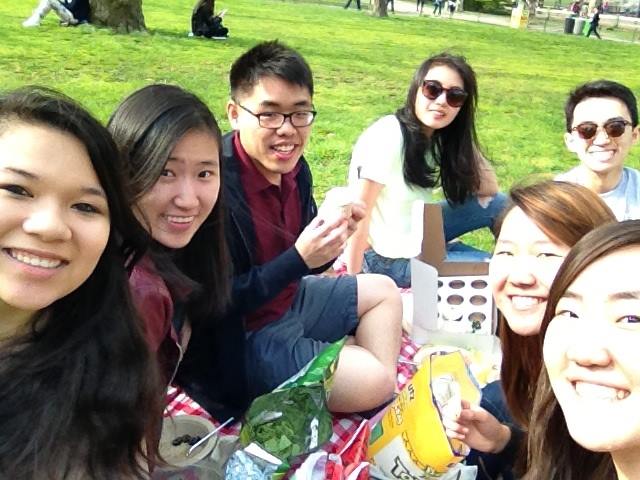Soup
Some time ago, I got into an argument with a friend over whether one “eats” or “drinks” soup.
So, I recruited 107 people using Mechanical Turk to answer two questions:
(a) I find soup to be: (1 = “Most similar to broth”; 5 = “Most similar to stew”)
(b) Does one “eat” or “drink” soup? (1 = “Most likely eat”; 5 = “Most likely drink”)
I hypothesized that people who associate soup with a thick, gooey liquid more similar to stew would be more likely to “eat” soup, while people who associate soup with a clear, liquidy liquid like broth would be more likely to “drink” soup.
Supporting my hypothesis, there was a modest (in terms of effect size) but significant correlation between how much one associates soup with broth, and how likely they are to “drink” soup – the more people associate soup with broth, the more likely they would be to say they “drink” it (points are jittered):
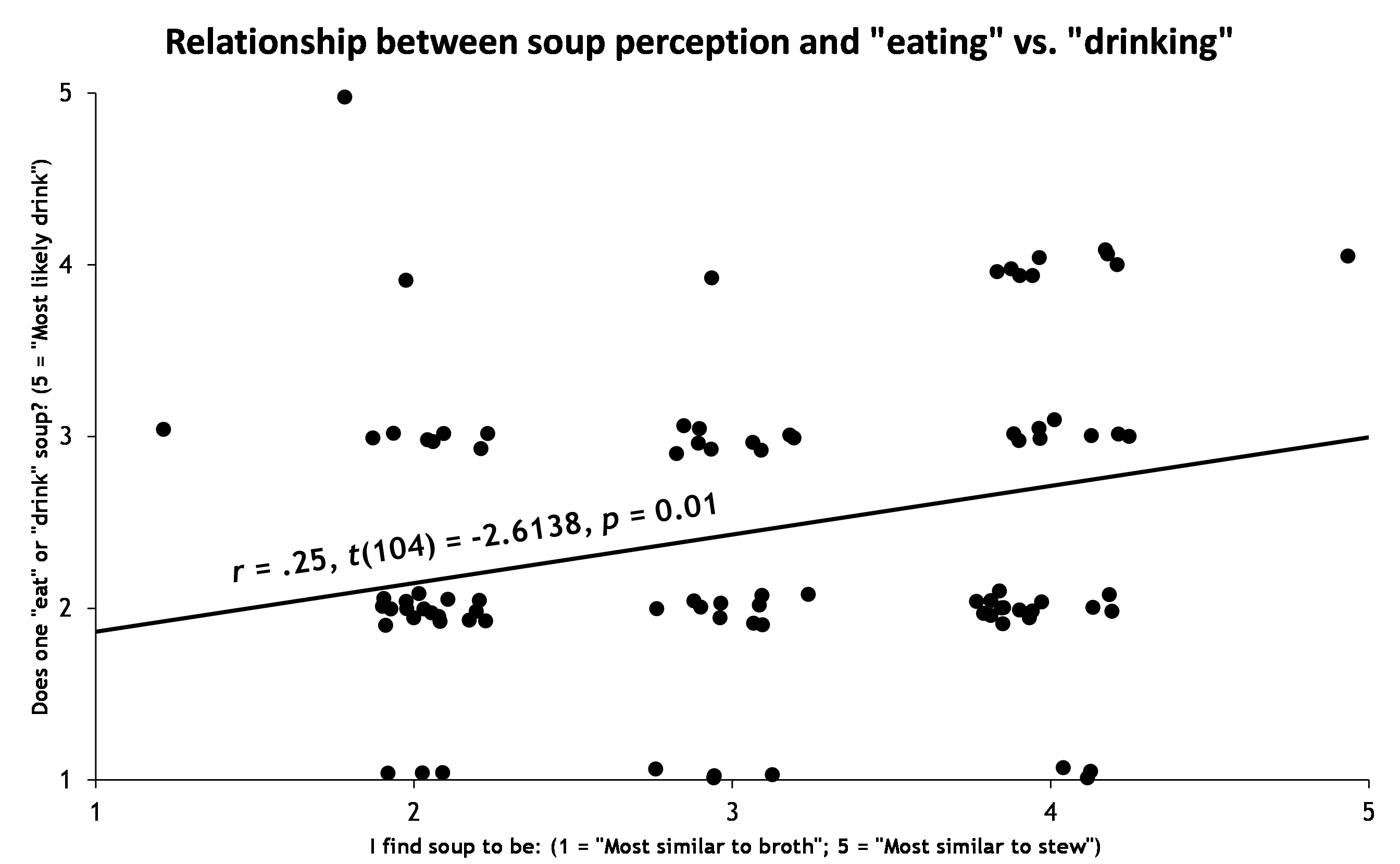
Dinosaurs and their souls
As a kid, I often wondered if dinosaurs had souls, and if so, if they’d still be wandering the earth.
I wanted to find out what the general public (or at least, the MTurk population) thought, so I conducted a poll of 1,000 users. Their response were as follows:

Oatmeal and pasta sauce
I happen to think oatmeal, when mixed with pasta sauce, tastes like a not-too-unpleasant cross between paella, congee, and rissoto. Everyone else apparently thinks I am out of my mind:
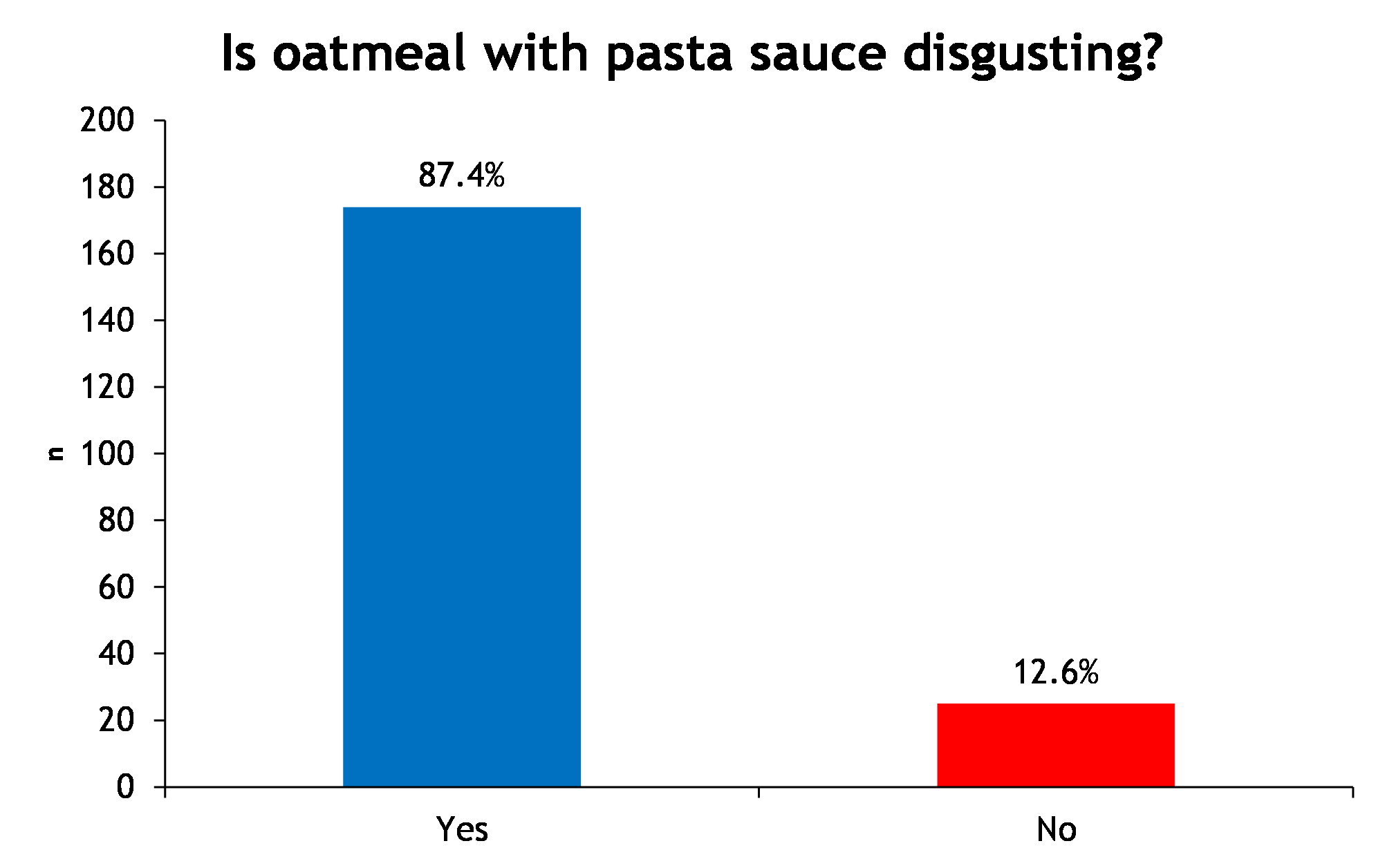
Yogurt and serving sizes
I was teaching my research assistants how to go about designing a simple online experiment. Our cynical assumption was that serving sizes were an attempt to subtly manipulate peoples’ perceptions of how healthy food really is.
We recruited 203 people using Amazon’s Mechanical Turk, and presented them with two different versions of a nutritional information table of a cup of yogurt. These were identical other than the serving sizes; the serving size of one was half the amount of the other:
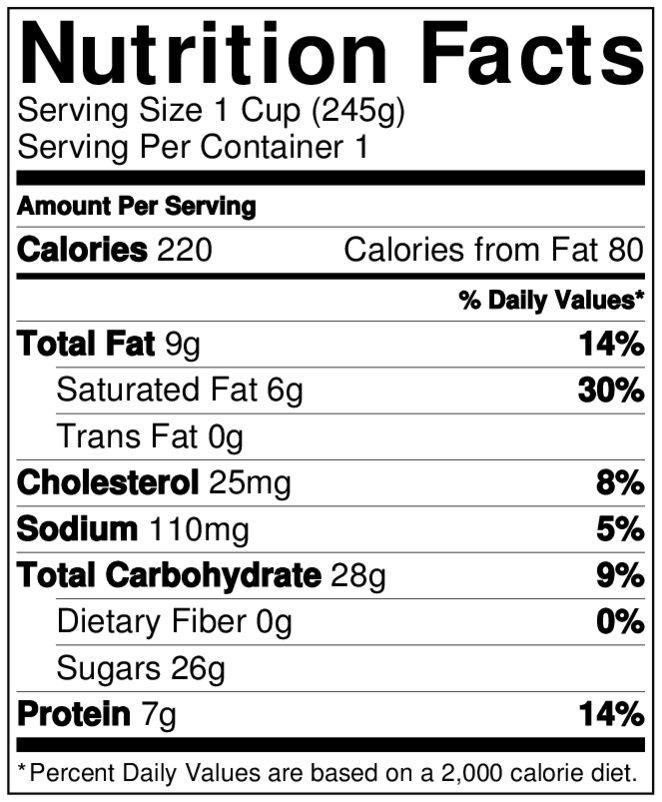
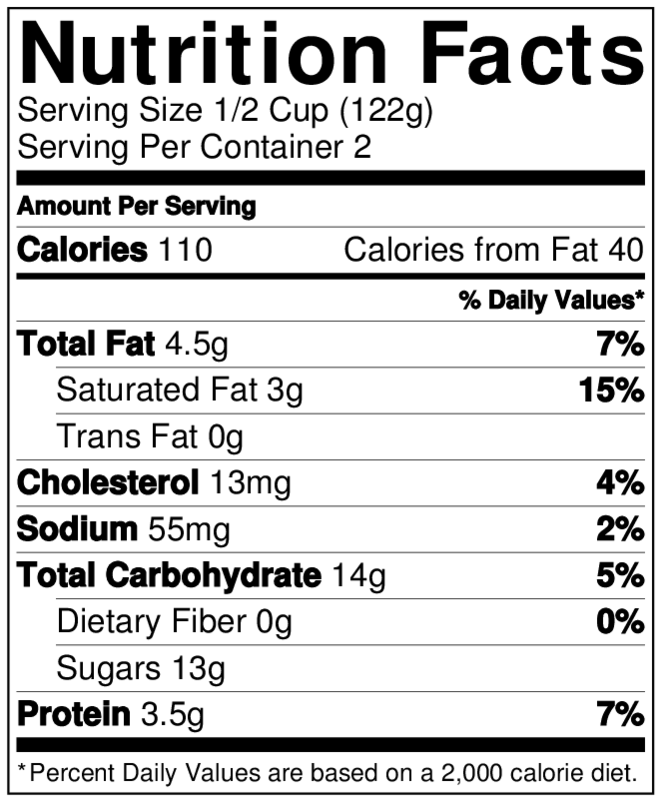
We then asked participants how healthy they thought the cup of yogurt was (on a 7-point scale), and found, using a
t-test, that participants rated the half serving of yogurt (M = 3.81, SD = 1.40) healthier than the whole serving (M= 3.41, SD= 1.35), t(199.92) = 2.07, p = .04:
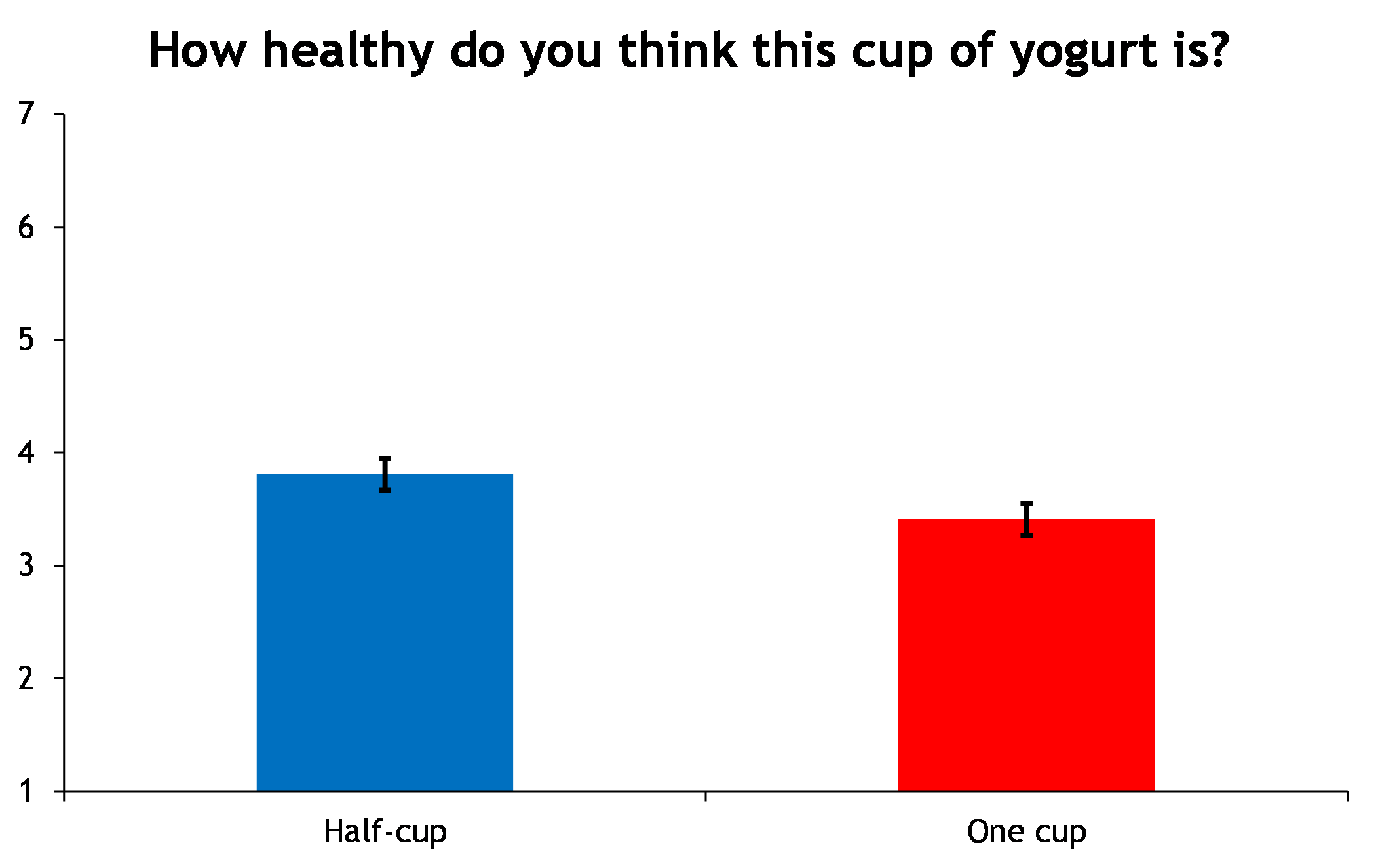
Anonymized feedback
If I can step outside of my witty, irreverant persona for a second, this is a dataset that I hold really close to my heart.
I was leading a team of 6 research assistants, and was trying to figure out the best way to structure my lab meetings. I was worried that my team would filter their feedback in a meeting, and so I ran an anonymized survey asking them what they really thought. For reference, that “crazy” idea involved me showing them how to run random experiments online, some of which are featured on this page:
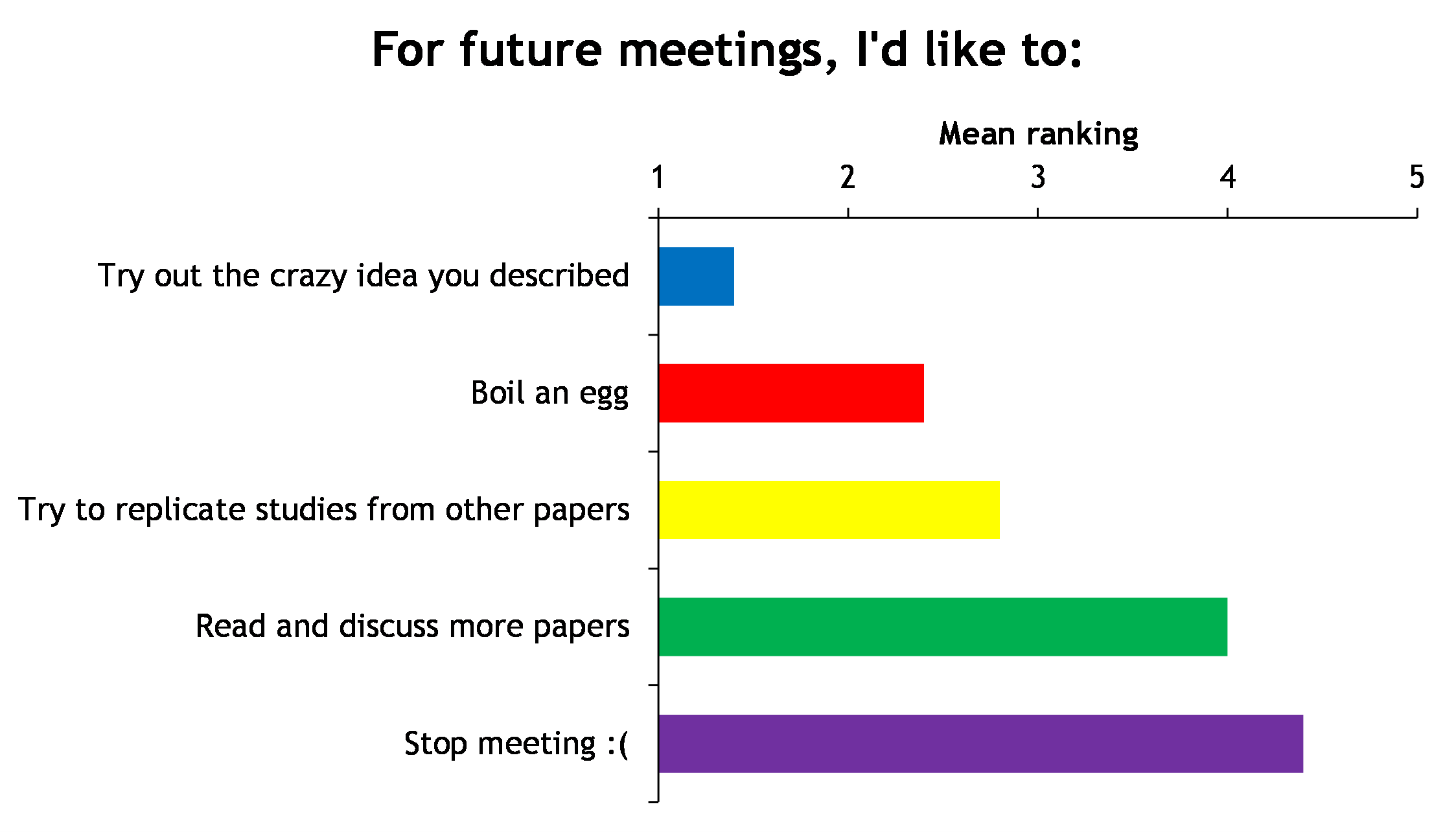
Crowdsourced event planning
My research assistants and I also used Mechanical Turk to help us decide what to do for a lab outing:
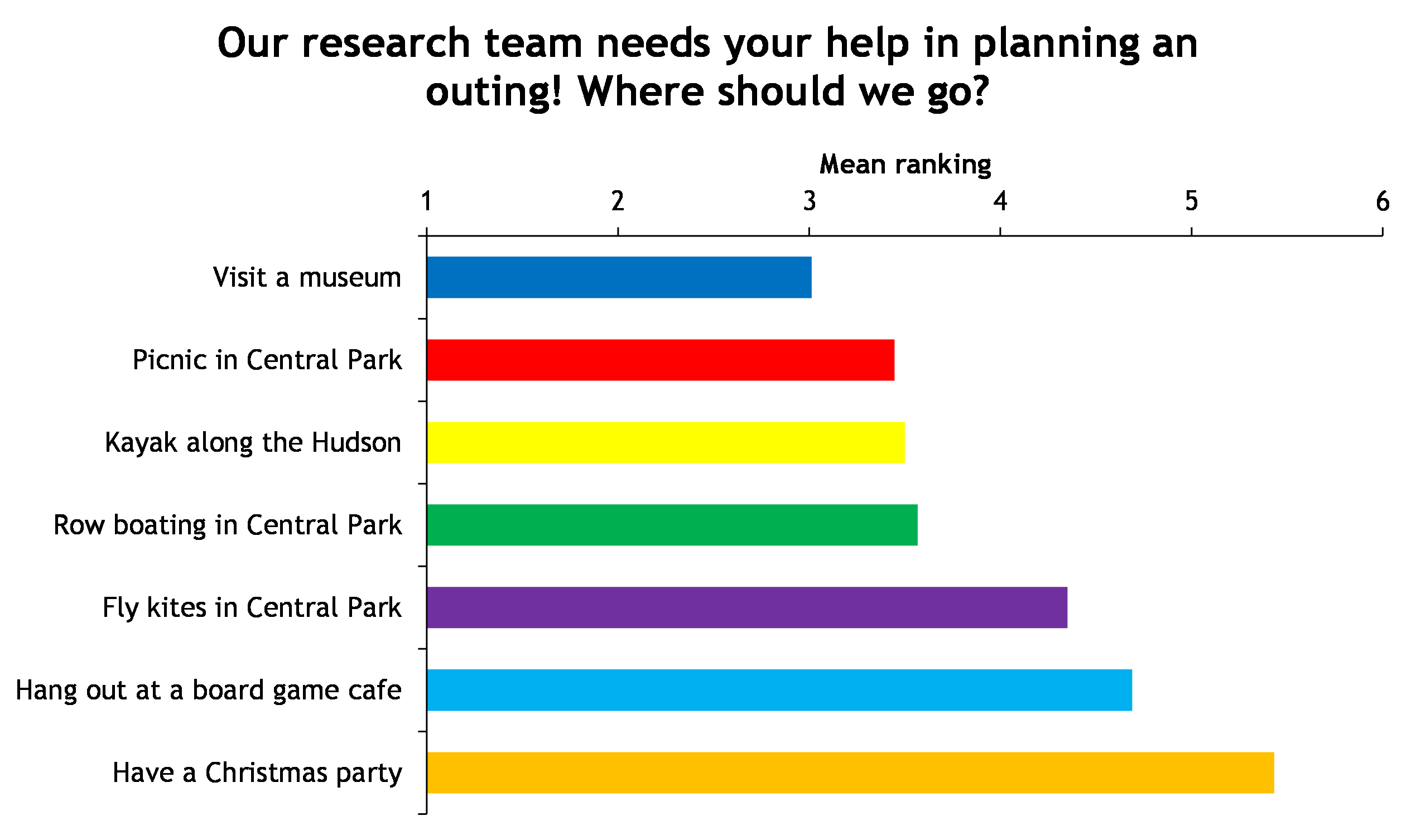
We ended up going with the 2nd option:
